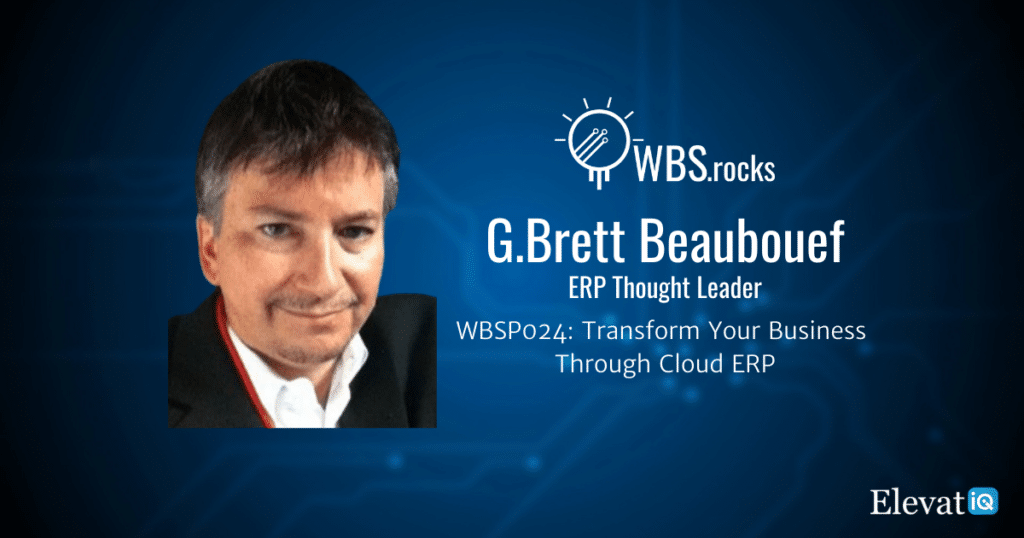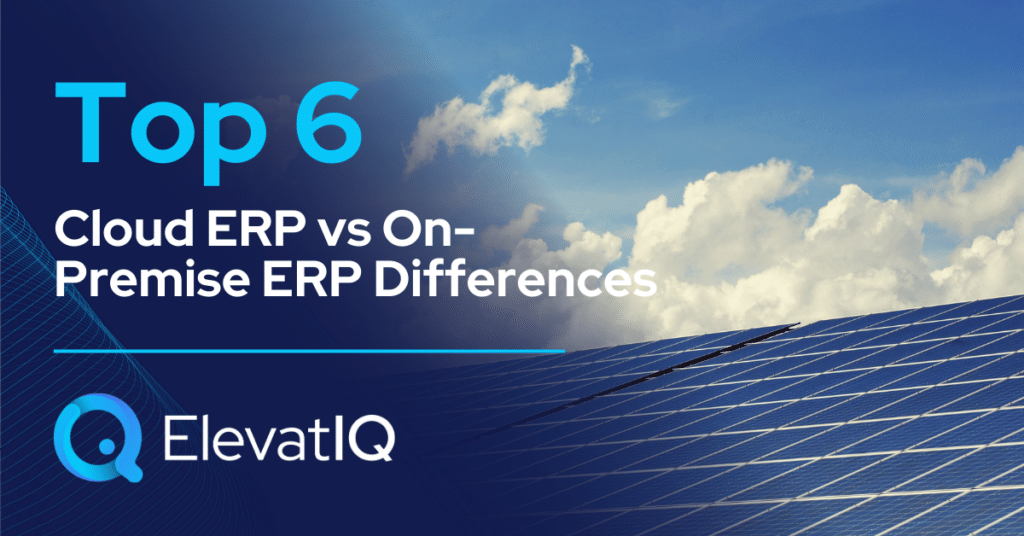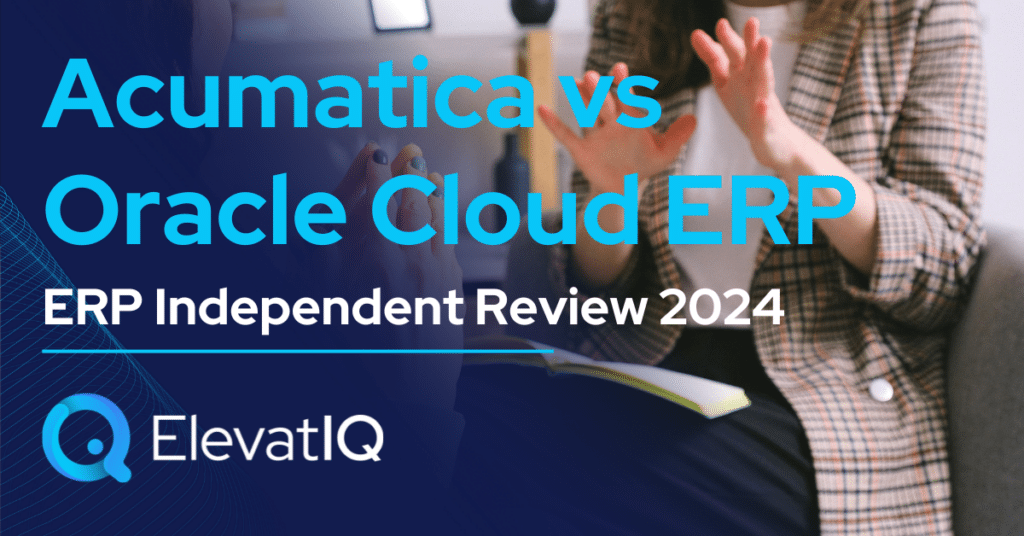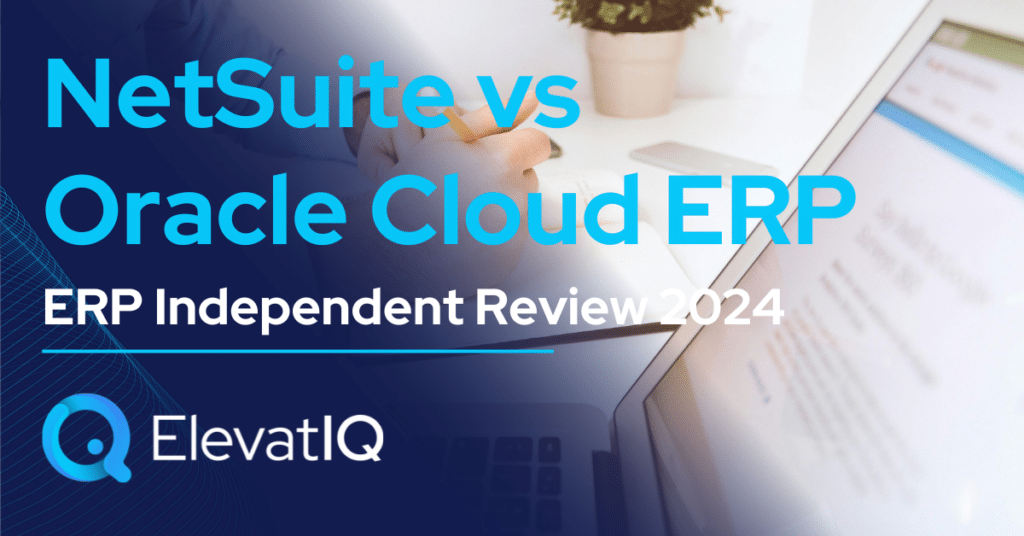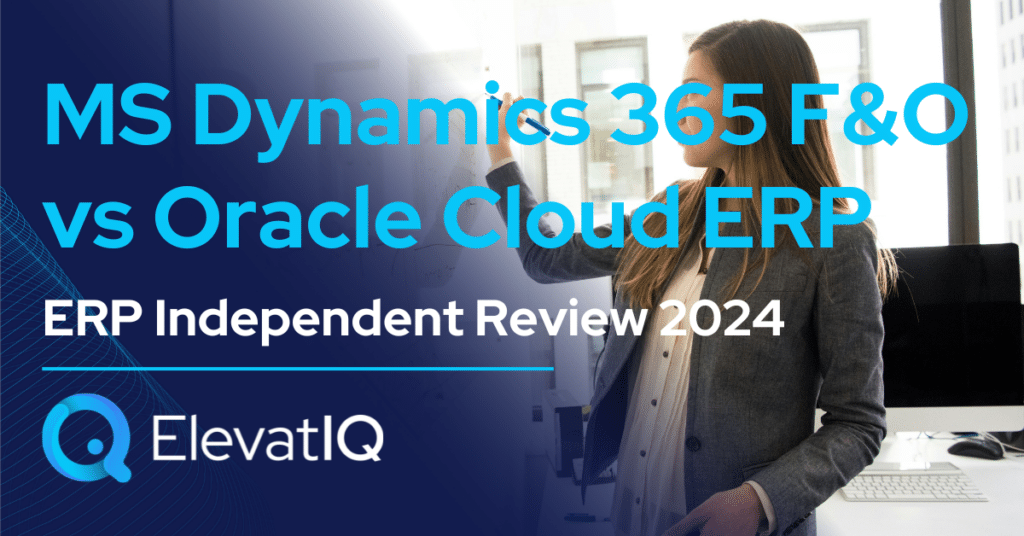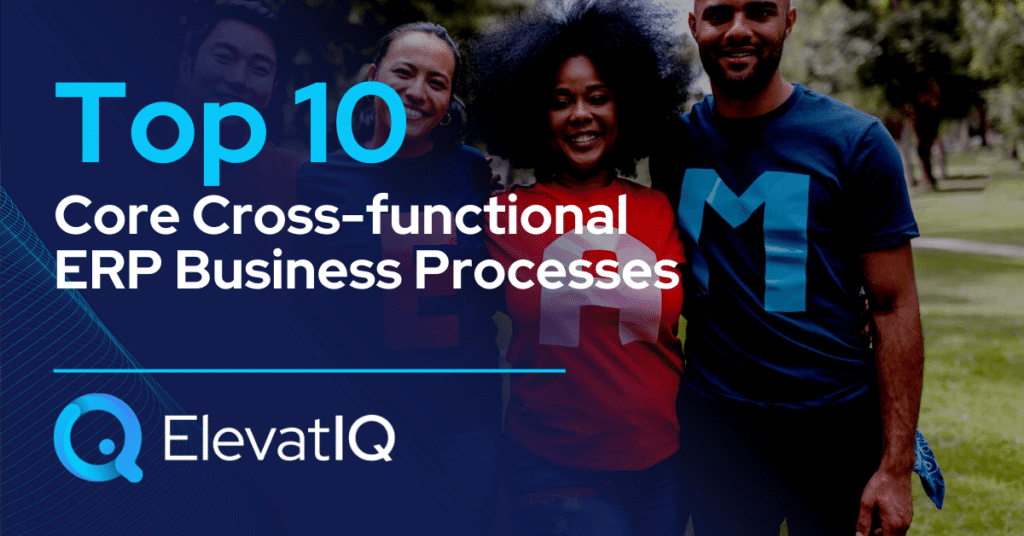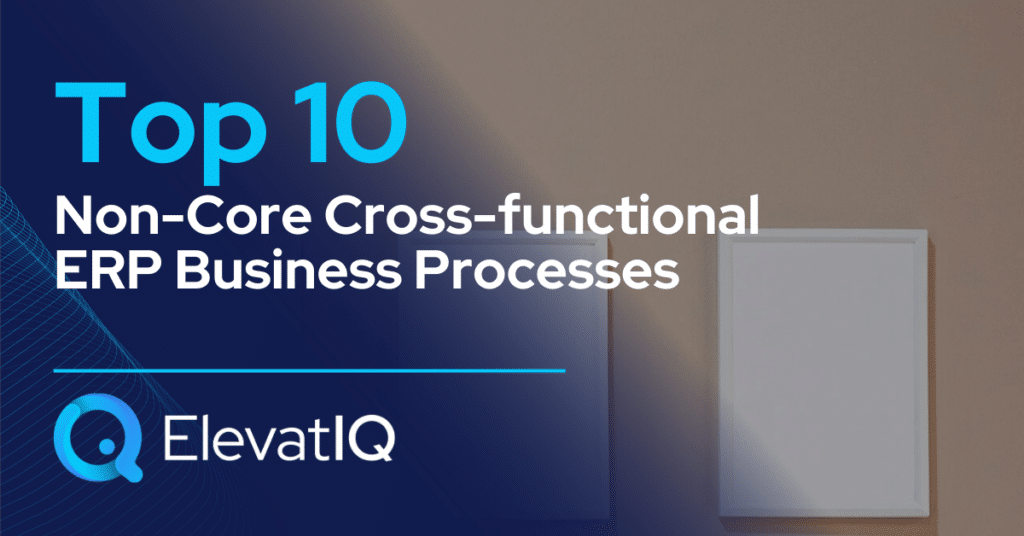In this episode, we have our guest Brett Beaubouef who provides insight into whether moving to the cloud guarantees business transformation. He also discusses how you can ensure business transformation with your Cloud ERP implementation. Finally, he provides a deep analysis of what to look for in a Cloud ERP Solution.
Chapter Markers
- [0:00] Intro
- [2:20] Personal journey and current focus
- [3:42] His perspective on growth
- [4:58] Does cloud ERP guarantee business transformation?
- [15:19] How would you ensure business transformation using cloud ERP?
- [18:39] How to find the best cloud ERP?
- [37:31] Closing thoughts
- [39:40] Outro
Key Takeaways
- The cloud ERP is a good enabler to help you in terms of transforming your business, but it’s really not the most important piece. And unfortunately, a lot of people in our community today and in the industry focus solely on technology or cloud ERP.
- All the money that’s spent towards the ERP implementation is typically spent on the implementation itself. And the least amount of money spent, and the ones that can have the largest impact, and that’s the individual people.
- A lot of customers think that this is something that doesn’t require a lot of effort. There are some misperceptions out there that also reinforce this thought. And it’s the misconception that cloud ERP is inherently intuitive. That’s almost like me saying to you that statistics is inherently intuitive.
- So when we’re talking about simplification, it’s about this philosophy and approach of utilizing what’s delivered out of the box as much as possible. That’s the basic value proposition for cloud ERP is that you can use everything that’s provided by that vendor. So that’s simplification.
- If it’s taking me two to three weeks to close my books, there is no level of trust, or it’s very minimal that I have with the cloud provider. So regardless of any technology, new technology they provide to me, I’m not going to trust it because I’m still having trouble doing the basics.
- Remember that you’re outsourcing your ERP IT services to a third party. This is the service, the software itself may work great. But if the service is inadequate, it’s really going to create a negative experience for the customer and for the users.

Subscribe and Review
Apple | Spotify | Stitcher | Google Podcasts | Deezer | Player FM | Castbox
About Brett
For the past twenty-five years, Brett has helped customers select, implement, and manage ERP solutions across five industries. Growing thought leader for ERP deployment and realization strategies. Brett is an ERP-published writer and author of an ERP agnostic blog called ERP the Right Way! With over 10k followers across 100 countries.
Resources
Full Transcript
Brett Beaubouef 0:00
One of the areas that traditionally they tried to reduce or skimp on is training—training the users. And it’s really the users that are going to have the most impact on if the ERP is going to successfully support the business or not.
Intro 0:20
Growing a business requires a holistic approach that extends beyond sales and marketing. This approach needs alignment among people, processes, and technologies. So if you’re a business owner, operations, or finance leader looking to learn growth strategies from your peers and competitors, you’re tuned in to the right podcast. Welcome to the WBS podcast, where scalable growth using business systems is our number one priority. Now, here is your host, Sam Gupta.
Sam Gupta 0:56
Hey everyone, welcome back to another episode of the WBS podcast. I’m Sam Gupta, your host, and principal consultant at a digital transformation consulting firm, ElevatIQ.
If you’re looking for an ERP in 2021, you might not even think of any other options than a cloud ERP. But what is cloud ERP? Does cloud ERP provide a competitive advantage? How do you ensure business transformation with cloud ERP? These are the questions you will have if you are at a stage where you can’t grow unless you implement a newer ERP system.
In today’s episode, we have our guest, Brett Beaubouef, who provides insights into whether moving to the cloud guarantees business information. He also discusses how you can ensure business transformation with your cloud ERP implementation. Finally, he provides a deep analysis of what to look for in a cloud ERP solution.
Let me introduce Brett to you.
For the past twenty-five years, Brett has helped customers select, implement, and manage ERP solutions across five industries. Growing thought leader for ERP deployment and realization strategies, Brett is an ERP-published writer and author of an ERP agnostic blog called ERP the Right Way! With over 10k followers across 100 countries.
With that, let’s get to the conversation.
Hey, Brett, welcome to the show.
Brett Beaubouef 2:19
Hey, thanks so much, Sam. Appreciate it.
Sam Gupta 2:20
Okay, to kick things off, do you want to start introducing yourself and what you’re working on these days?
Brett Beaubouef 2:29
Absolutely. So my name is Brett Beaubouef. I am an ERP thought leader as well as an ERP project manager. I’ve been in the ERP industry for the last 25 years, started out as a customer, then as a consultant, was really blessed to have the opportunity to work my way up the growth chain, if you will, doing technical consulting, functional consulting, solution architect, project manager, and then a practice manager. These last several years, I’ve been focused on how customers can generate maximum business value from their ERP investments that are through research, also doing surveys with customers, helping them to better understand what they have and how to best utilize those investments.
So that’s my passion I’m on. On the side, as one of my hobbies, I write an ERP blog called ERP the right way. And I share my wits and my wisdom as well as it’s a great opportunity to get feedback and to learn from others. Cuz I’m still on this journey of learning the world of ERP.
Sam Gupta 3:42
Okay, amazing. So before we get deeper into your background, and I have tons of questions there because obviously, you have a very interesting experience. But one question that we ask every single guest that we get here is, what is your perspective on growth? Brett
Brett Beaubouef 3:58
Growth is necessary, first and foremost, right? Businesses, by their very definition, are a going concern. And in order to remain going, you’re going to need growth as the world has become more global, and competition is global. It’s no longer localized. Everyone is looking for opportunities for growth, not only from a competitive advantage perspective but in terms of their operations, their processes, the information, the data that they collect today, how can they leverage and use that to further their competitive advantage and actually grow?
So my particular world I focus on is ERP, specifically, and cloud ERP. So I’m definitely researching working with customers to identify how moving to the cloud is one piece of their strategy for business growth.
Sam Gupta 4:58
So Brett, tell me, does cloud ERP guarantee business transformation?
Brett Beaubouef 5:06
Well, that’s an excellent question, Sam. No, the short answer is no. Technology is one component of a business solution. Within a business solution, I see it as people, processes, and technology. The cloud ERP is a good enabler to help you in terms of transforming your business, but it’s really not the most important piece. And unfortunately, a lot of people in our community today and in the industry focus solely on technology or cloud ERP.
I can hear it now in sheer sales presentations that are happening with customers, look at these features, capabilities, look what this can do for you, and not really defining, okay, the story of how these technologies enable the business to be successful. In fact, if you really think about which component is the most important component of a business solution, again, we talked about people, processes, and technology in my 25-year experience, it’s people. It’s the individual business user. It’s that individual that’s keying in that purchase order every day and matching AP invoices against payments. Those are the individuals that are most important that really can drive the success of a business. And cloud ERP plays an important part as an enabler.
Brett Beaubouef 6:38
However, what I found through my ERP career is the fact that all the money that’s spent towards the ERP implementation is typically spent on the implementation itself. The system implementation partners coming in to assist with the configuration, also in the products and the services that say the software vendor or reseller provides, whether that’s Oracle or SAP. And the least amount of money spent, and the ones that can have the largest impact, and that’s the individual people.
So typically, as I work with customers, and of course, every customer wants to maximize the bang for their buck and implement ERP as quickly as possible. One of the areas that traditionally they tried to reduce our skimp on is training, training the users. And it’s really the users that are going to have the most impact on if the ERP is going to successfully support the business or not. Not only in terms of training and educating, but also in terms of organizational change, how their day in life will change.
A lot of customers think that this is something that doesn’t require a lot of effort. There are some misperceptions out there that also reinforce this thought. And it’s the misconception that cloud ERP is inherently intuitive. That’s almost like me saying to you, Sam, that statistics is inherently intuitive.
Brett Beaubouef 8:20
There are certain things that are not going to be inherently intuitive. They’re complex. And enterprise resource planning solution is not intuitive. There are certain aspects. They should be intuitive, like, for example, creating an expense report. Yes, or self-service for HR. Absolutely. But there are some other things or other configurations that need to be done that are not, in here at least intuitive. In fact, it takes a lot of thought. There are probably 1000 decisions that a customer has to make as part of a cloud ERP implementation.
That was the case for on-premise. And guess what that is the case for the cloud. So really, what I tried to do in working with customers and giving them advice and guidance, is helping them to better understand how cloud ERP can support your business transformation. So one of the ways that we try to do that is to set realistic expectations. We can go back 30 years, and first when the ERP came out, and the functionality and the capabilities that were there in the present, and then you have seen the second generation of ERP and now the third generation, especially with cloud ERP, but there are certain things that ERP can do, but also what the cloud ERP can’t do.
There are certain things that it is very good at doing, you know. Other expectations customers may have that are really not realistic. For example, let’s talk to a couple of those efficiently. Cloud ERP can help drive efficiency, primarily through standardization. Also, automation of manual tasks.
Brett Beaubouef 10:29
What I’m trying to say is cloud ERP can help you do smarter work. So in how does it do that by providing you additional insights into the data pattern recognition, highlighting those opportunities for you, cloud ERP can do that. Now, can it create a competitive advantage for a customer? Absolutely not. And if anyone tells you that, then they’re trying to sell you something. Keep in mind ERP is broad. It has been designed and developed to support a multitude of customers from a global perspective across multiple industries.
And almost every cloud ERP vendor worth a grain of salt will tell you that it inherently has best practices engineered into its products and services. That’s a fair statement. Best practices are not competitive practices. There’s a difference. Best practices are common. So common across an industry or a particular country, people kind of figure out this is the best way of doing things.
But Sam, let me ask you, say like we’re playing a game of chess, and you have something that you feel gives you an edge over me? Are you going to share that with me freely?
Sam Gupta 12:02
Definitely not.
Brett Beaubouef 12:05
Absolutely. It’s the same thing when a company, they’re not going to really say, Hey, you know what, I’m going to share this with the world because it’s great. And everyone should be doing this, this, you know, this certain process this way? There are going to be activities and processes that are competitive, and competitive advantage is the most important.
Now, from a cloud ERP perspective, it’s just going to provide a generic platform, right in terms of automating processes and workflows. And even maybe in the configuration might be a little unique for a particular customer. But when it comes down to those competitive advantages, it’s not going to be provided out of the box for any ERP cloud solution.
Brett Beaubouef 13:03
But what’s most important is that the customer is still able to support those competitive advantages. And that could be via an on-premise solution. That could be via, say, a cloud environment, but something that is private, not public, that’s just available to everyone. So it’s important to set those realistic expectations. I know there are many stories that are out there that may say, X number of top industry leaders use this solution and other sales propositions that are driven towards showing that, hey, this customer is successful, and this customer is successful because they purchased this particular vendor, cloud ERP.
Now, I definitely agree that it’s probably played a role in supporting that. But that is not by itself is the only reason there’s far more than that, especially in terms of competitive business practices and activities, also in the people. So it’s good that as you’re looking at different cloud ERP solutions, you understand what the software can do, but also what the software can do.
Brett Beaubouef 14:29
And that will help you to ensure that you have appropriate expectations because if you don’t, a lot of the ERP implementations have been noted as failures. And by the way that they’re at relatively speaking, few failures, there are quite a few disappointments. A lot of those disappointments have come from unrealistic expectations of what the ERP would be able to do. And as well as not fully appreciating the role that ERP or cloud can play and supporting your processes as well as your people to be more competitive because they’re truly your competitive advantage. The software is just a software or service at the end of the day.
Sam Gupta 15:19
Okay, so you do a lot of work in the business transformation space. And I want to make sure that we are covering everything that we can from the business transformation perspective. So let’s say if we want to ensure the business transformation using cloud ERP. How would you ensure that?
Brett Beaubouef 15:34
Given what I’ve described in my comments earlier, another key area that I see a lot of customers not fully define or just assume will naturally happen is improvement in business performance. I think it’s very important that any customer undertaking a cloud ERP implementation gets a snapshot, if you will, of currently where their business is at, especially in terms of performance, so that when they go live with the cloud ERP solution.
They have a reference point to go back and say, okay, we’ve implemented this business solution. Has it truly improved business performance? You can look back at those metrics that you defined upfront to determine, okay, have we improved? Yes or no, some of the KPIs or key performance indicators will improve based upon doing an ERP cloud implementation, just for the sake of automating a manual task or eliminating variability.
Brett Beaubouef 16:44
If you’re a student of lean principles, like I am, you know that a key to reducing cycle time is reducing the variations that can happen within a business process. Cloud ERP can be very useful in reducing those variations as well as making it more efficient. However, there are going to be some business processes that will not be improved. Those business processes tend to be more around the competitive advantage.
And if anything, it identifies to the customer the fact that if you only depend upon cloud ERP to satisfy all of your strategic goals and your initiatives, you’re missing the point. There’s no cloud ERP solution that can do that. It’s part of the answer, absolutely. But also, you need to look at those processes and the resources that you have to make sure that they’re aligned to hit those KPI targets.
So whenever I see customers do a cloud ERP implementation, they’re focusing more on the software or on the features than they are on the results, having the baseline, targeting your KPIs, managing your KPIs, of making sure that you’re focusing on the true business results. And not necessarily at these little silo points. Features that may add some efficiency may reduce some variations but has no impact on the end business result. And at the end of the day, that’s why you’re implementing the cloud ERP to improve business results.
Sam Gupta 18:39
Yep. So let’s say if I’m thinking of implementing a cloud ERP solution, and I want your advice in terms of what I should be looking for in a cloud ERP solution, what would be your advice?
Brett Beaubouef 18:53
First of all, I would advise customers would be to think outside the box. And do not just focus or leverage traditional approaches for software selection. I can summarize it into five key areas for me, 1) simplification; 2) repeatability; 3) reliability; 4) technology growth; and then 5) trust.
So let me break down each one of those one at a time. Simplification, we briefly talked about this here previously, where we really want to simplify our management of a business solution. From a technology perspective, as simple as possible. The more parts you have in an engine, the more opportunities you have for a breakdown. So we want to keep that simple.
Brett Beaubouef 19:51
Also, in terms of maintenance, having a simplified solution will make you, I’d be quite honest, more flexible and adaptable. A school of thought that was around, especially in ERP design and development, back in the 90s and early 2000s is that, well, if you want flexible and adaptable, we need to build more configuration options for you. Or we need to enable you to create more customizations. That worked fine in terms of the initial setup and tactically addressing specific flexibility or, you know, adaptability.
However long term, it had adverse impacts, say like, for example, updates that you may receive from your ERP vendor. It was harder to take those updates because you’ve added and that additional complexity, if you will, in terms of customization. And don’t get me wrong, Sam, I’m all for customization, especially if it supports the revenue-generating activity.
But if you’re telling me that, and I worked with a customer once, in this situation, that they needed 30 customizations for an expense module, and they sold life insurance. So I asked them, okay, why do you need 30 customizations for an expense module? Well, we want to be world-class in expense management. And I sat back and said, I hear you. But you don’t sell expense management. You sell life insurance.
Brett Beaubouef 21:44
And I said, even if you do, it may save a minute or two of additional time for the individual expense reporter as it, but in the big scheme of things, you’re adding more work in terms of the level of effort to do an upgrade, number one, number two, you might need those resources that you’re focusing on, making maybe a siloed point solution, a little more efficient, could have a better impact in the entire business result.
And another area in the business solution. So everyone has scarce resources, everyone has to manage the money that they have. And I just advise customers to make sure that they’re getting the most bang for their buck. If they tell me that, Brett, this is a competitive advantage, or this is a compliance issue.
Brett Beaubouef 22:40
And I need to have this as it is all good. That makes sense. But don’t spend it was in an area that may have limited benefit from a functional perspective that has an adverse effect on the business result. So think in terms of that. So when we’re talking about simplification, it’s about this philosophy and approach of utilizing what’s delivered out of the box as much as possible. That’s the basic value proposition for cloud ERP is that you can use everything that’s provided by that vendor. So that’s simplification.
Now, let’s talk about repeatability, this kind of aligns with trust, but I’ll talk about it. Now you have a repeatable solution, you create a journal entry, and you can continue to create that journal entry. And you get the same result, Time after Time. Now, it’s a little different in the cloud; from the standpoint that you don’t necessarily are subscribing to software, you’re subscribing to a service.
So from a service perspective, you want to make sure that that service is repeatable, that the services that the ERP cloud provider is providing to you are repeatable. It’s there. You put this information is you’re going to get that same result. And cloud ERP is now more mature than what has been in the past, say the last 10 to 15 years. But still, it’s important that that service is up, that’s available, because you may have the functionality there. But if the service is not up, then who really cares. So that’s what I’m talking about repeatability, which is also that availability, and that every time I do a certain transaction, I’m going to get that same result.
Third, reliability, the service is up and running, also in terms of whenever I do have an issue with cloud ERP. I have a service desk to go to. Now with cloud ERP, you are outsourcing a specific part of your ERP IT support to the vendor. With cloud ERP, you’re outsourcing that service.
Brett Beaubouef 25:04
As I work with cloud ERP customers, it has been an education that we had to do with our customers in terms of, right previously, you’ve had dedicated IT support resources there on-site available to you that you could just pick up the phone and call. Not so much in the cloud ERP. And here’s why. First of all, in cloud ERP, most support models are shared support. So there are no IT resources or support resources dedicated to one customer. They’re typically dedicated to multiple customers.
Now, you can purchase additional support. But most cloud customers, again, the basic value proposition of reduced cost, most cloud customers don’t go with that option. So you have to appreciate knowing that. Okay, now I’m going to be reliant on a third party to provide me support. So reliability is important, not only that the services available, and that you can support your business with but also in terms of there are support resources there and available to you, that will be able to work with you if you run across a particular problem and they issue.
Brett Beaubouef 26:26
Now, a lot of cloud ERP vendors will say, you know what, we provide superior support because we offer 24X7 service. The reality is, most customers don’t want to be available 24X7 because a lot of times, whenever there’s a support issue, there needs to be real-time interaction. And I don’t know of any customer that I’ve ever worked with that was happy to get a phone call at 2 am in the morning from an IT support resource in India saying, hey, I got time, let’s work on your problem.
And they are like, no, please leave me alone. Go away. I’m going back to bed. So it’s some of those nuances that a customer needs to think through as they’re moving to cloud ERP. It’s not a bad thing, Sam. And it’s actually a reduction in cost. However, as you said, Nothing in life is free, and you get what you pay for. So as long as the customer knows that acknowledges that it can work within those boundaries, I think that’s good. The next area is technology growth.
Brett Beaubouef 27:45
Again, this is where cloud ERP is superior because you’re on a public cloud. And all the customers are on the same software code, which enables the vendor to provide more updates quicker to customers than they had in the past. So say like, for example, an on-premise customer, you might get an update once a year. And they might then next a customer may implement it every other year, versus in the cloud, you’re getting an update either every three to six months.
And it’s upgrade friendly, which means that the customer no longer has to go through a battery of tests and reviews of code, those features and that technology is provided with an update and is there ready to be leveraged and used by the customer. As far as selecting the right cloud ERP solution provider, I wanted to select someone who is always providing updates and leveraging the latest technologies.
Even though as well as I have the choice of using that technology or not and I’m on a public cloud solution, if I decide not to use that technology or that capability, that’s okay. It’s available for other customers. They can use it, there’s no impact to me, but at least I have that technology there.
Brett Beaubouef 29:23
Now let’s talk about Trust. Trust is very important in the cloud. Again, you’re renting it, are subscribing to a service, you’re outsourcing, part of your support, all these new technologies and capabilities are going to be available to you. However, if you don’t have trust in your vendor, and I really should stop using the term vendor and just call them a service provider because truly, that’s what they are.
Say, like, for example, I have a provider, come to me with a quarterly update and say, Well, look here. Now we’ve embedded artificial intelligence and machine learning into our processes. And our customers can start leveraging and using those recommendations that are made by that functionality. Now, if I’m still as the customer, if I’m still having trouble trying to close my financial books, what are the odds, I’m going to be jumping with joy that AI and machine learning has been made available to me? Probably none at all, you know, it’s the basics, you know, you got to be competent in the basics. So that’s where it comes back to that repeatability.
Brett Beaubouef 31:24
If it’s taking me two to three weeks to close my books, there is no level of trust, or it’s very minimal that I have with the cloud provider. So regardless of any technology, new technology they provide to me, I’m not going to trust it because I’m still having trouble doing the basics. And with me having trouble doing the basics, guess what? My business process performance is not where I expected it to be. And trust is very important. And since it’s a service, it’s not a one-time deal. It’s not like that the implementation is up, and we’re good; It’s every month; and it’s every journal entry that they put in.
You’re either adding or subtracting from the trust. And that really, I think, is a limit to customers in terms of how much they are really leveraging Cloud ERP. Now, to get the full value proposition that was articulated to the customer during the sales cycle, they need to continue to adopt the latest technologies, in the latest features, they need to continue their growth within the cloud ERP service, not maintain if they maintain, they’re basically losing money off the deal.
Brett Beaubouef 32:44
So it’s important that it’s not a point in time. It’s a continuing solution. And again, we’ll encourage customers to continue to stretch and further leverage in use. Their cloud service is trusted at the end of the day. Now when I also talk with customers about what they should look for in the ERP cloud solution. And we talked a little bit about this in terms of having customization for particular non-revenue generating processes. You really need to focus on business processes in business results.
Generally, there are three types of business processes, there’s revenue-generating, and of course, from revenue-generating, your target is to be as effective as possible. Now, sometimes being effective means you’re not as efficient. But that’s okay. Especially if you want to create a unique customer experience, but the customer knows and understands that.
But for revenue-generating business processes, you want to be as effective as possible. That’s where your competitive advantage lies, and you’re not looking for a competitive advantage within the cloud ERP provider. You’re just looking for the enablers that will support you in implementing those competitive business processes. So that’s revenue-generating.
Now, if I’m looking at revenue, support in revenue, supporting the business process, say like, finance or HR, my target is to be as efficient as possible, right? I don’t necessarily want to create a unique customer experience for each of my expense reporters. I want it to be competent and cheap. And I want it to be reliable.
Brett Beaubouef 34:34
With compliance, the same school of thought, I want to be as cheap and as competent as possible, right. I don’t want to say like when you and we do our individual tax returns once a year. I don’t provide a lot have additional notes to the IRS. And I don’t care if they have to spend more time looking at my return as long as I get my return and I am compliant. I’m good with that. I don’t need a world-class solution that needs to do my tax returns.
Even though when I work with customers, naturally, they will focus on things that may make them more efficient in their particular functional area, they may not be seeing the bigger picture in terms of the entire business process. And the organization in terms of right I have a need, or I have a want sorry, not a need want for HR particular process or activity, however, is that more important than a particular need, I have in my revenue-generating business process, which one will generate more money for the company in the long run, which one is going to further ensure those business results that my executives and my shareholders are looking for?
Brett Beaubouef 36:14
So I would use these three broad types of business processes as a priority list, if you will, in terms of Okay, when I’m defining my requirements, okay, what’s most important to me, and you may have some uniqueness within a particular company. Sometimes it’s called differentiation. What makes you unique, but what makes you unique, may not be growing your business, and you need to look at that requirement from that perspective as well.
Finally, what you look for in a cloud ERP solution is a good service. Remember that you’re outsourcing your ERP IT services to a third party. This is the service, the software itself may work great. But if the service is inadequate, it’s really going to create a negative experience for the customer and for the users. And guess what, when users can’t get a solution to their problems, they start looking at workarounds and then not using the software as intended. And then, that results in other consequences that will eventually reduce the business value a customer should be experiencing from their cloud solution.
Sam Gupta 37:31
Okay, amazing. So thank you so much for your insight. Do you have any last-minute closing thoughts?
Brett Beaubouef 37:36
Absolutely. So first of all, Sam was thank you for giving me the opportunity. I really appreciate it, you know, having this opportunity. I always say this to customers. And remind them that technology is just one piece in the business transformation puzzle. Technology should be viewed as an enabler but not the sole driver.
Also, whenever you’re making an ERP selection, not only look at the software but also look at the services that are being provided. That’s, that’s vital and important. Also, look at how you select software. Just don’t look at the individual products and features. And assume that if you get all those products and features that will result in the desired business results you’re after, really take more of a business results focus in then have the ERP provider or vendor explained to you how their solution supports your desired results.
Brett Beaubouef 38:42
Because at the end of the day, it’s business processes that create results, not functional silos, not bells and whistles, or the latest technology. It’s those technologies and those features incorporated into a business process along with the right business activities and people that will drive your business performance and then measure it.
You don’t know what you have until you measure it. And you can’t measure what you have until you measure it. Identify upfront what those KPIs are? What are the things that are important? And then measure that as you go through your business transformation journey, you will identify the drivers to improve your KPIs versus just assuming implementing a cloud ERP solution will transform your business.
Sam Gupta 39:40
Okay, I could not agree more. So with that, I just want to thank you for your time.
I can’t thank our guests enough for coming on the show for sharing their knowledge and journey. I always pick up learnings from our guests, and hopefully, you learned something new today. If you want to learn more about Brett or his blog, head over to erptherightway.com. Links and more information will also be available in the show notes.
If anything in this podcast resonated with you and your business, you might want to check other related episodes, including the interview with Erin Koss, CPA, who shares a story of an ERP project that was a massive success, despite disruptions from COVID-19. Also, the interview with Ram Krishnamurti, where he discusses why costing strategies matter for any ERP implementation and how to make an ERP project successful.
Also, don’t forget to subscribe and spread the word among folks with similar backgrounds. If you have any questions or comments about the show, please review and rate us on your favorite podcasting platform. Or DM me on any social channels. I’ll try my best to respond personally and make sure you get help.
Thank you, and I hope to get you the next episode of the WBS podcast.
Outro 40:51
Thank you for listening to another episode of The WBS podcast. Be sure to subscribe on your favorite podcasting platform, so you never miss an episode. For more information on growth strategies for SMBs using ERP and digital transformation, check out our community at wbs.rocks. We’ll see you next time.


